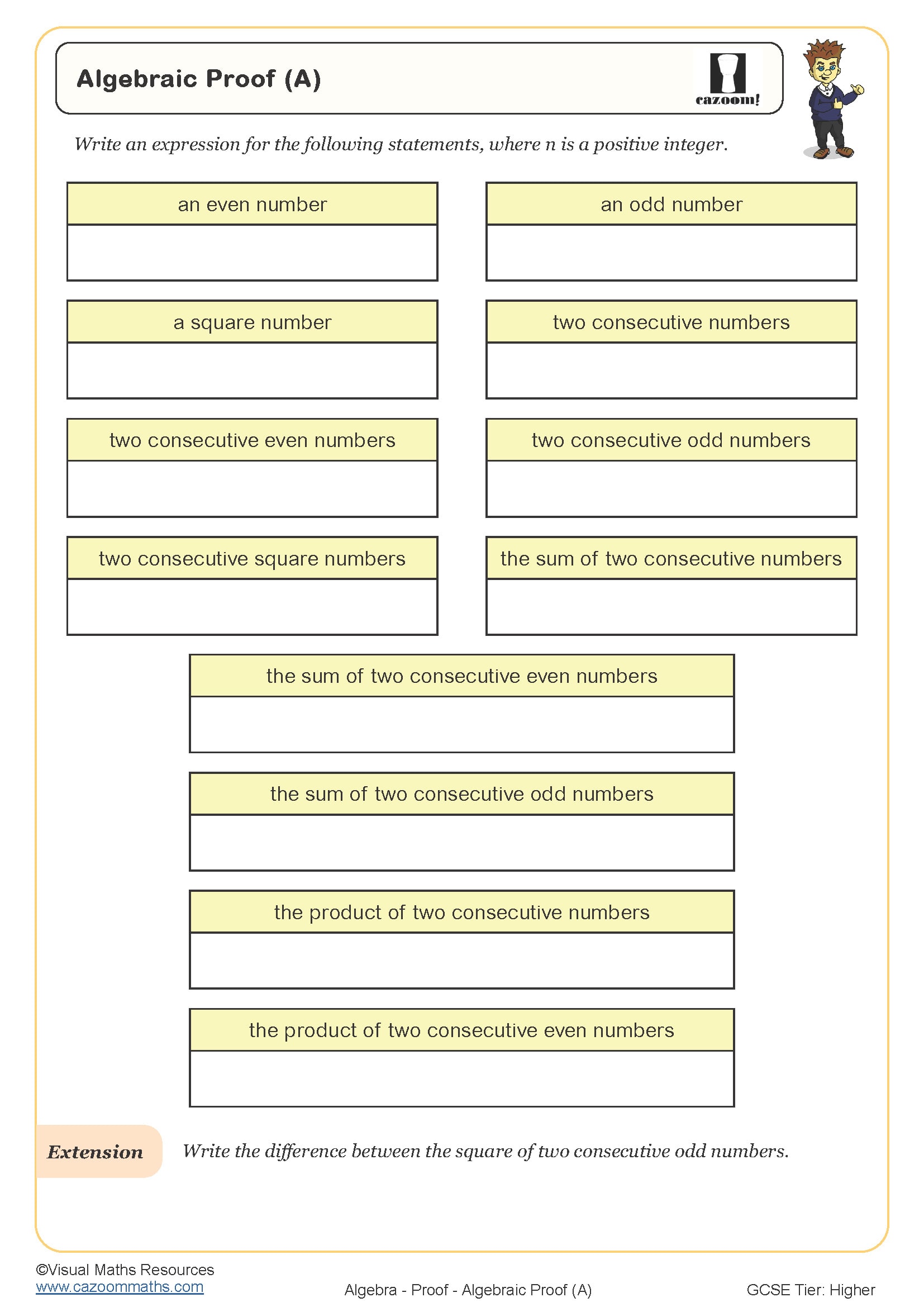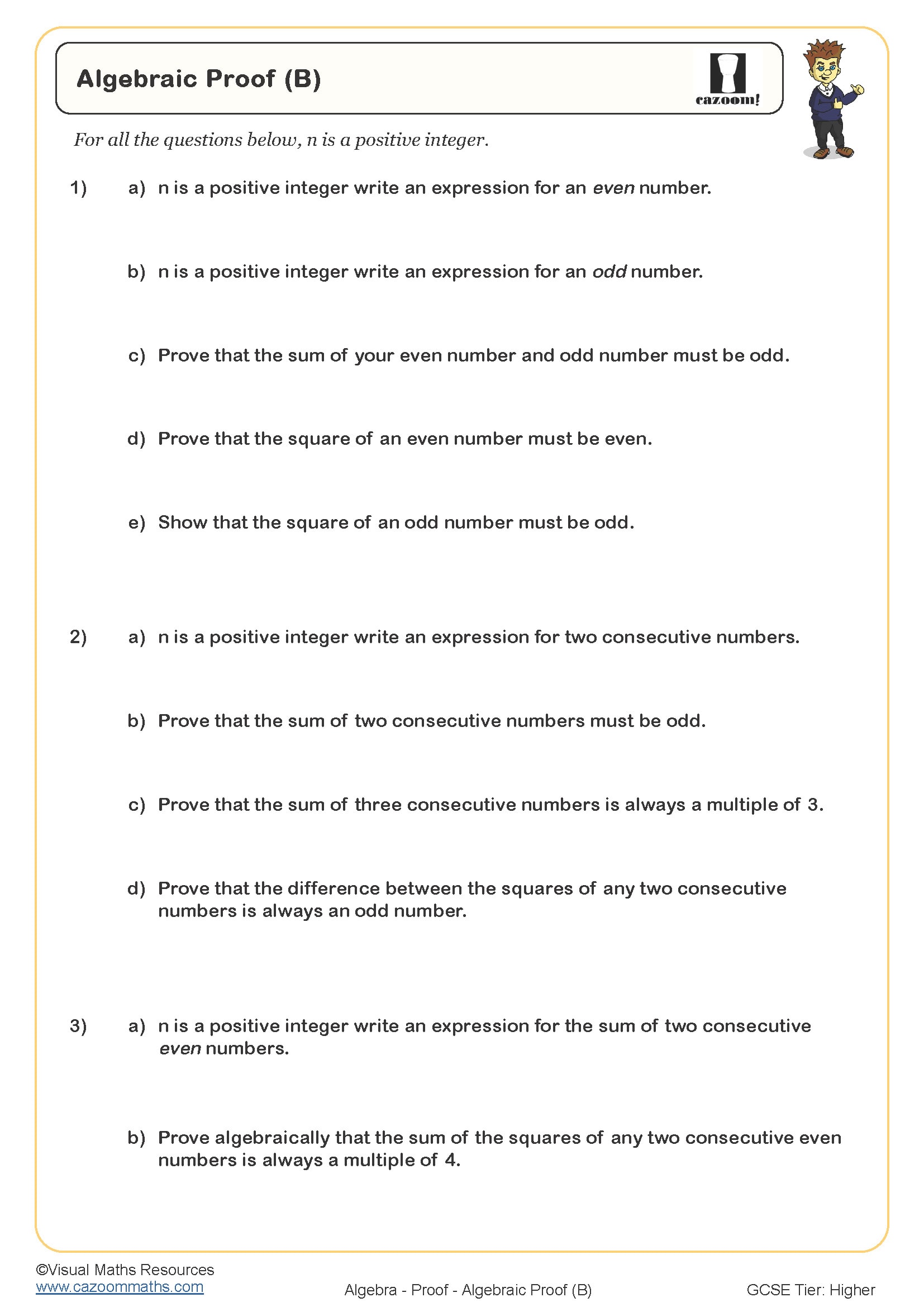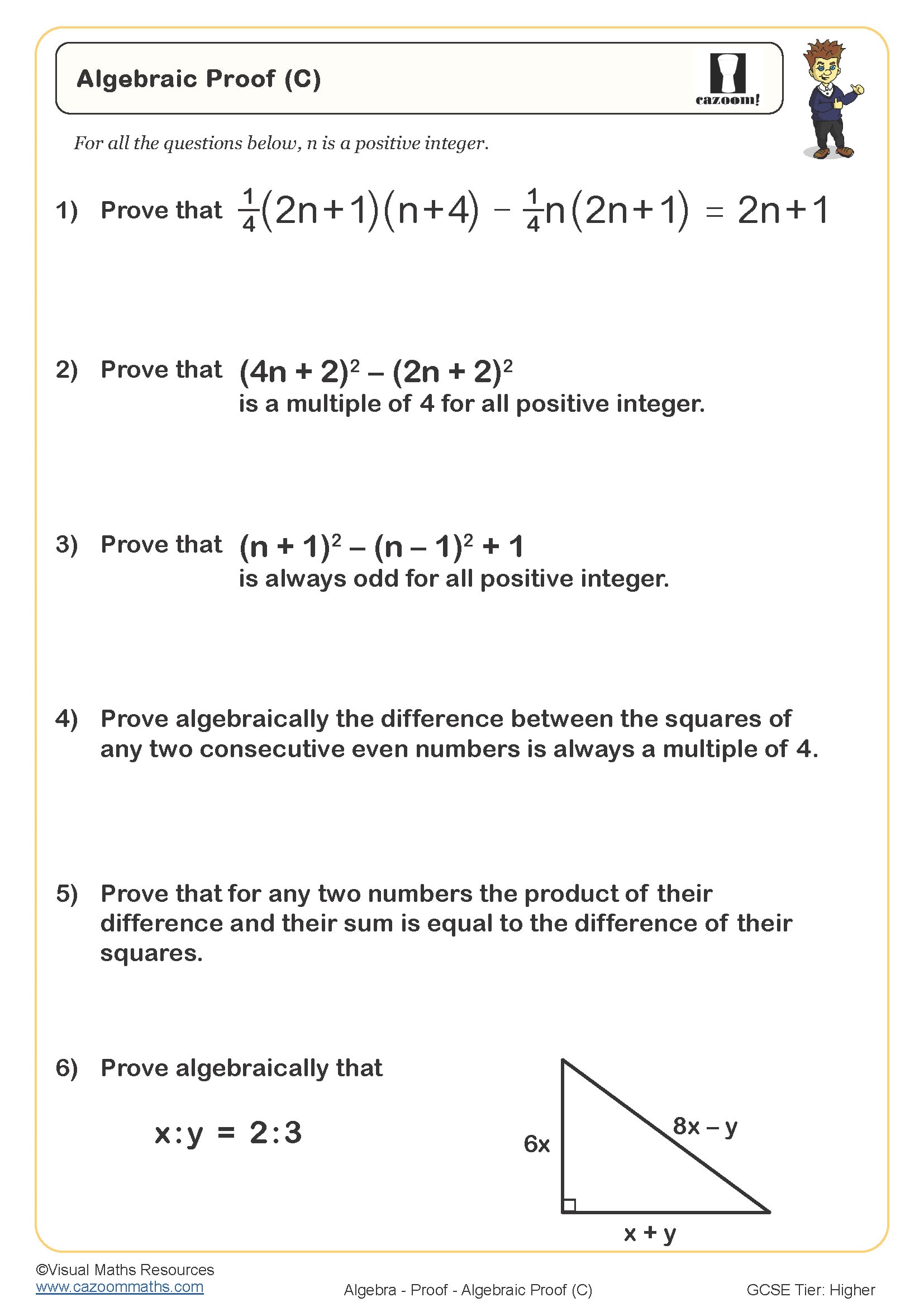Year 11 Proof Worksheets
All worksheets are created by the team of experienced teachers at Cazoom Maths.
Master Algebraic Proof Techniques with Step-by-Step Practice Worksheets
Here's the thing about finding quality algebraic proof practice: most resources either oversimplify or throw students in the deep end. These worksheets bridge that gap perfectly, covering everything from basic algebraic manipulation to complex proof structures. Each algebraic proof worksheet includes detailed worked solutions that show the complete thinking process, not just the final answer. Students always tell us they finally "get it" when they can see each logical step laid out clearly.
Essential Proof Skills Covered in These Year 11 Algebra Worksheets
We've packed quite a lot into these algebraic proofs worksheets! The progression moves naturally from straightforward substitution proofs through to sophisticated algebraic reasoning. Students particularly love the "proof by contradiction" sections (surprisingly satisfying when the logic clicks). You'll find algebraic proof examples covering identities, inequalities, and geometric applications. The variety keeps lessons engaging while building that crucial mathematical reasoning foundation.
Why Year 11 Students Need Structured Algebraic Proof Practice
Teaching algebra proofs for years, we've noticed something consistent - students who practice regularly perform significantly better on formal assessments. There's a real connection between structured practice and exam confidence that's impossible to fake. These algebraic proof worksheets target exactly what examiners look for in GCSE responses:
• Clear logical progression from hypothesis to conclusion
• Proper use of mathematical notation and terminology
• Confident handling of algebraic manipulation within proofs
• Recognition of when proof by contradiction is most effective
• Ability to construct original arguments, not just follow examples
Real-World Applications Where Students Use Algebraic Reasoning Skills
Students always ask, "When will I ever use algebraic proof?" Here's what we tell them - these reasoning skills appear everywhere, from computer programming logic to legal argumentation. The structured thinking develops transferable problem-solving abilities that serve students well beyond mathematics. It's actually quite satisfying when former students return, saying how proof techniques helped in university courses:
• Physics derivations requiring step-by-step logical development
• Computer science algorithm verification and debugging processes
• Economics model construction and assumption testing
• Engineering design calculations with safety factor justifications
• Statistics and data analysis require rigorous conclusion support
• Architecture and design where structural logic must be demonstrated


